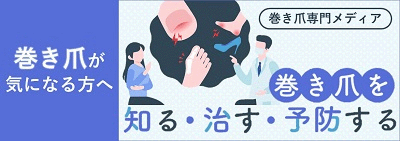Doctor Introduction

Dr. Hideko Suzuki
Founder, Shinagawa Suzuki Dermatology Clinic
| Year | Education / Career Details |
|---|---|
| 2002 | Graduated from Tsurumaru High School (Kagoshima Prefecture) |
| 2008 | Graduated from Saga University, Faculty of Medicine Clinical training, The University of Tokyo Hospital |
| 2010 | Department of Internal Medicine, Mitsui Memorial Hospital |
| 2011 | Department of Dermatology, Kanto Rosai Hospital |
| 2013 | Department of Dermatology, The University of Tokyo Hospital |
| 2014 | Department of Dermatology, Japanese Red Cross Medical Center |
| 2016 | Department of Dermatology, The University of Tokyo Hospital |
| 2017 | Certified Dermatology Specialist (Japanese Board of Medical Specialties) |
| 2018 | Ph.D., Department of Surgery Graduate School of Medicine, The University of Tokyo |
| 2022 | Shibuya Ekimae Oshima Clinic Ikebukuro Ekimae Noda Clinic Shinjuku Ekimae Uwajima Clinic Karuizawa Hospital (Nagano) |
| 2023 | Training at Melanoma Institute Australia (Sydney) |
| 2025 (June) | Opened Shinagawa Suzuki Dermatology Clinic |
Qualifications&Degrees
- Board Certified Dermatology Specialist (Japanese Board of Medical Specialties)
- Ph.D. in Medicine (The University of Tokyo)
Professional Memberships
- Japanese Dermatological Association
- Japanese Society of Clinical Dermatology
- Japanese Psoriasis Association
- Japan Society for Laser Surgery and Medicine
General Dermatology-Conditions&Treatments
1. Acne
Acne vulgaris affects more than 95% of people. Common on face, chest, and back. Causes: excess sebum, clogged pores, bacterial inflammation. Treatments: topical retinoids, benzoyl peroxide, antibiotics, oral isotretinoin (self-paid), chemical peels.
2. Hand Eczema
Frequent in people with water/chemical exposure. Symptoms: dryness, cracking, itching. Treatments: moisturizers, topical steroids, excimer light therapy.
3. Hyperhidrosis
Excessive sweating on armpits, palms, soles. Treatments: Ecclock gel, Rapifort wipes, Apohid lotion (insurance). Botulinum toxin injections (self-paid).
4. Athlete’s Foot&Nail Fungus
Athlete’s foot affects ~20%, nail fungus ~10%. Treatments: topical antifungals, oral antifungals (Terbinafine, Itraconazole, Fosravuconazole), topical nail lacquers.
5. Cellulitis
Bacterial skin infection with redness, swelling, fever. Treatments: oral antibiotics, incision&drainage, hospitalization if severe.
6. Felon / Paronychia
Infection around nails after injury. Treatments: drainage, antibiotics, taping or partial nail removal for granulomas.
7. Contact Dermatitis
Triggered by cosmetics, detergents, chemicals. Treatments: avoid allergen, topical steroids. Patch testing available (insurance).
8. Psoriasis
Chronic inflammatory disease with red scaly patches. Treatments: topical steroids, phototherapy, oral immunosuppressants, biologics (by referral).
9. Herpes Simplex
Viral infection on lips/genitals. Recurs with stress or fatigue. Treatments: oral antivirals, ointments, early-start therapy.
10. Herpes Zoster
Shingles caused by varicella-zoster virus. Painful rash. Treatments: oral antivirals, pain relief. Vaccination available.
11. Condyloma Acuminatum
HPV-related genital warts. Treatments: Imiquimod cream, cryotherapy, surgical excision.
12. Syphilis
STI caused by Treponema pallidum. Increasing in Japan. Treatments: antibiotics after blood test confirmation.
13. Port-wine Stain
Congenital vascular lesion. Persistent red/purple patches. Treatments: pulsed dye laser (V-beam).
14. ADM
Acquired dermal melanocytosis on cheeks. Common in young women. Treatments: Pico laser, Q-switched Nd:YAG laser.
15. Alopecia Areata
Autoimmune hair loss in patches. Treatments: topical steroids, intralesional steroids, excimer light therapy.
16. Vitiligo
Chronic depigmentation due to loss of melanocytes. Treatments: topical steroids, calcineurin inhibitors, excimer light therapy.
17. Insect Bites
Caused by mosquitoes, fleas, mites, bedbugs. Symptoms: redness, swelling, itching. Treatments: topical steroids, antihistamines.
18. Moles&Benign Tumors
Includes moles and benign tumors. Some require exclusion of melanoma. Treatments: excision (insurance), laser removal (self-paid).
19. Sunburn
Skin damage from UV exposure. Symptoms: redness, pain, blisters. Treatments: cool compresses, moisturizers, topical steroids.
20. Ingrown Toenail
Nail grows into skin causing pain and infection. Treatments: taping, nail braces (self-paid), partial nail removal (insurance).
Minor Surgery: Epidermal Cysts, Warts, and Moles
Epidermal Cysts
Epidermal cysts are benign tumors formed by the accumulation of keratin under the skin. They can become inflamed or infected, requiring surgical removal.
Procedure Flow:
- Local anesthesia
- Small skin incision over the cyst
- Removal of the entire cyst capsule to prevent recurrence
- Suturing the wound
- Follow-up and suture removal in about 1 week
Warts
Warts are caused by HPV infection and can be removed surgically when resistant to conservative treatment (cryotherapy, laser, etc.).
Procedure Flow:
- Local anesthesia
- Excision with scalpel or scissors
- Cauterization or laser for bleeding control
- Dressing and wound care guidance
Moles
Benign melanocytic nevi (moles) can be removed for cosmetic reasons or if malignancy is suspected.
Procedure Flow:
- Local anesthesia
- Shaving excision (for small, raised moles) or full-thickness excision (for larger or suspicious moles)
- Suturing if needed
- Pathological examination if malignancy is suspected
- Follow-up and suture removal in about 1 week
Frequently Asked Questions
- Is surgery painful?
- Local anesthesia ensures minimal pain. Mild discomfort may occur after the procedure.
- Will there be a scar?
- Small scars may remain, but they usually fade with time. Cosmetic closure techniques are used.
- Is it covered by insurance?
- Surgery for inflamed cysts, symptomatic warts, or suspicious moles is generally covered. Cosmetic-only removals may not be.
- How long is downtime?
- Most patients can return to daily activities immediately. Avoid strenuous activity until stitches are removed.
V-Beam II (Pulsed Dye Laser)
A 595 nm pulsed dye laser (Syneron Candela, USA). Effective for vascular-related skin conditions.
What it treats:
- Insurance: Port-wine stains, Infantile hemangiomas, Telangiectasia
- Cosmetic: Acne redness, Rosacea, Venous lake, Cherry angiomas, Keloid scars
Pricing :
| Area | Price (JPY,tax included) |
|---|---|
| Nose | 11,000 |
| Cheeks | 22,000 |
| Full face | 33,000 |
| Venous lake(per lesion) | 13,200 |
| Acne redness (≤10 shots) | 11,000 |
| Acne redness (≤20 shots) | 17,600 |
| Resistant wart (per site) | 9,900 (+5,500 each extra) |
| Cherry angiomas (≤5 lesions) | 11,000 (+2,200 each extra) |
| Keloid scar 2–4 cm | 22,000 (>4 cm: 44,000) |
| Telangiectasia (palm size) | 33,000 |
PicoSure Laser (Picosecond Alexandrite Laser)
A 755 nm FDA-approved picosecond laser. Effective for pigmentation, tattoos, melasma, freckles, and rejuvenation.
Pricing:
| Treatment | Price (JPY,tax included) |
|---|---|
| PicoSpot (≤1 cm) | 16,500 |
| PicoSpot (≤2 cm) | 27,500 |
| PicoSpot (≤3 cm) | 27,500 |
| PicoSpot (≤4 cm) | 49,500 |
| Full face (1st session) | 110,000 |
| Full face (2nd+ session) | 99,000 |
| PicoToning (full face) | 22,000 |
| PicoFractional Nose | 14,300 |
| PicoFractional Cheeks | 27,500 |
| PicoFractional Full face | 33,000 |
| Optional anesthesia cream | 5,500 |
Typical Number of Sessions
- V-Beam: 3–10 for acne redness/rosacea, 1–5 for telangiectasia, 1–2 for angiomas
- PicoSure Spot: 1–5 depending on pigmentation depth
- PicoToning: 5–10 sessions every 2–4 weeks - PicoFractional: 3–5 sessions every 4 weeks
Access&Location
Just 1 minute from Shinagawa Station (Konan Exit)
Address: 6F, Tanita Kikaku Dai-ichi Building, 2-2-16 Konan, Minato-ku, Tokyo 108-0075 Phone: +81-3-3471-1241
Directions:
- Exit Shinagawa Station through Konan (East) Exit
- Go down via escalator or stairs
- Our building is right in front
- Clinic is on the 6th floor; use the rear elevator
Consultation Hours
| Day | Morning | Afternoon |
|---|---|---|
| Monday | 10:00 – 13:30 | 15:00 – 18:30 |
| Tuesday | 10:00 – 13:30 | 15:00 – 18:30 |
| Wednesday | 10:00 – 13:30 | 15:00 – 18:30 |
| Thursday | Closed | 15:00 – 18:30 |
| Friday | 10:00 – 13:30 | 15:00 – 18:30 |
| Saturday | 09:00 – 13:30 | Closed |
| Sunday,Holiday | Closed | Closed |
Closed on: Thursday morning, Saturday afternoon, Sunday, and public holidays.
Reception Hours&Notes
- Reception starts at 09:55 for morning (08:55 on Saturdays)
- Reception starts at 15:00 for afternoon
- Telephone inquiries are only accepted during consultation hours (not during 13:30–15:00).
Reservation Policy
- Appointments are in 30minute blocks. Example: 10:00 reservation means arrival between 10:00–10:30 is acceptable.
- Please note you may wait if others arrive earlier within the same time slot.
- For sameday cosmetic procedures or surgeries (e.g., DermaTRON, peels), booking after 11:00 or after 16:00 is recommended.
Payment Methods
Cash, Visa, MasterCard, UnionPay, JCB, AMEX, Diners Club (for both insured and self-pay treatments).
Online reservations available via clinic website.
We look forward to welcoming you!












